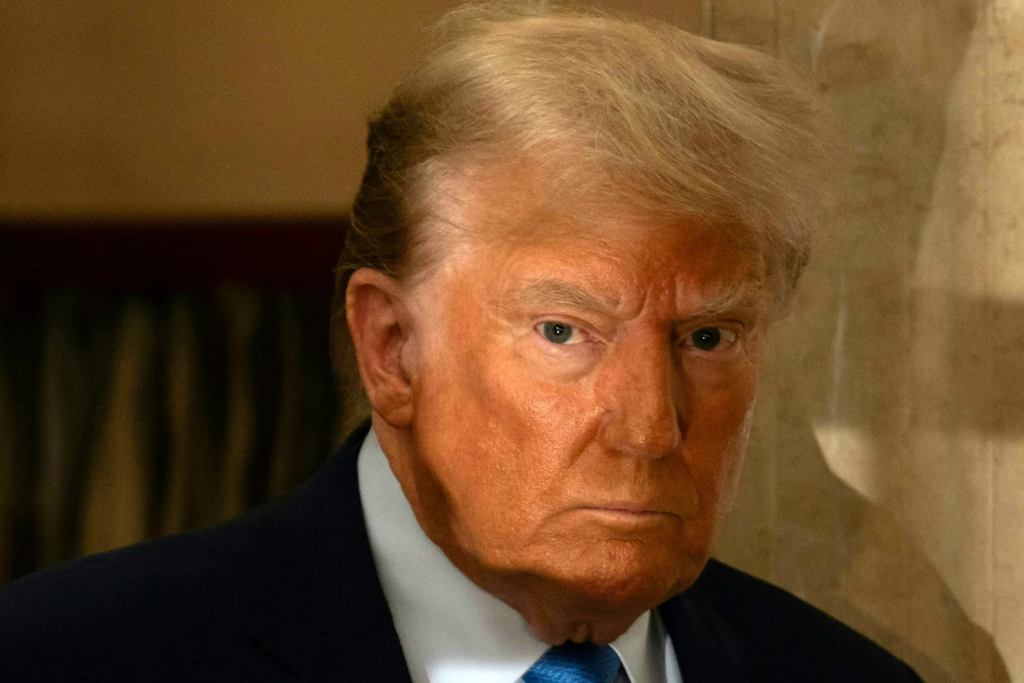President Trump’s health has once again come under public spotlight as reports suggest he may be dealing with chronic venous insufficiency (CVI) a condition that affects blood flow in the legs. As the former president gears up for another potential presidential run, concerns about his mobility, stamina, and medical status are becoming talking points across political and media circles.
Chronic venous insufficiency is a common but often overlooked condition, especially among older adults. For someone in Trump’s position, where public appearances and long events are routine, it could potentially influence physical comfort and performance.
In this article, we break down the details of chronic venous insufficiency, how it may relate to President Trump, and what it means for daily life and leadership responsibilities.
1. President Trump Chronic Venous Insufficiency: What Is It?
Chronic venous insufficiency occurs when the veins in the legs struggle to send blood back to the heart, usually because of damaged vein valves. Instead of moving upward toward the chest, blood may pool in the legs, leading to swelling, pain, and varicose veins.
This condition affects an estimated 40% of Americans, most commonly in older adults. The risk increases with age, weight gain, lack of physical activity, and long periods of sitting or standing all factors that may apply to high-stress political roles.
For Trump, who is in his late 70s and has had a high-profile, sedentary lifestyle at times, medical experts suggest that CVI could be a relevant concern.

2. Signs and Symptoms That May Affect Trump’s Day-to-Day Life
If Trump is managing chronic venous insufficiency, symptoms may include:
- Swelling in the lower legs and ankles
- Tired, aching, or cramping legs
- Skin discoloration or thickening around the ankles
- Restlessness or a heavy feeling in the legs
- Development of leg ulcers or slow-healing wounds
None of these symptoms are immediately life-threatening, but they can interfere with daily comfort and mobility. This could be particularly important for a public figure like Trump, who frequently travels, stands at rallies, and participates in long meetings.
Cameras often capture politicians from the waist up, making it easy to overlook leg health concerns. However, the discomfort caused by CVI can be very real, especially for someone managing multiple public obligations.
3. Is Chronic Venous Insufficiency a Serious Condition?
While not fatal, CVI can lead to serious complications if untreated. These include deep vein thrombosis (DVT), skin infections, and leg ulcers. Fortunately, many cases can be controlled with medical care, lifestyle changes, or minor procedures like laser vein treatment or compression therapy.

It’s not uncommon for older men especially those over 70 to live comfortably with CVI when properly managed. However, prolonged neglect of symptoms can make walking painful or standing for long hours difficult.
Trump’s medical history, as previously released during his presidency, has shown that he remains generally healthy for his age. But a condition like CVI could require ongoing monitoring, compression stockings, or short-term therapy to reduce swelling and pain.
4. How Is Chronic Venous Insufficiency Treated?
If Trump is being treated for CVI, here are some of the common treatment options he may be following:
- Compression Stockings: Tight-fitting socks or sleeves that help squeeze blood upward
- Lifestyle Changes: Elevating the legs, regular walking, weight loss, and avoiding long standing
- Medications: Anti-inflammatory drugs, diuretics, or anticoagulants
- Minimally Invasive Procedures: Laser therapy, sclerotherapy, or vein ablation to close damaged veins
These methods help reduce discomfort, improve circulation, and prevent long-term damage. Given the former president’s resources and access to high-quality medical care, it’s likely he would have access to top-tier treatment if needed.
The main goal of CVI treatment is to improve daily quality of life and prevent worsening of symptoms. With effective management, even someone with a busy schedule like Trump can stay active and engaged.
5. Could Trump’s Health Condition Affect His 2024 Campaign?
With the 2024 election cycle approaching, voters are paying closer attention to the physical and mental health of all candidates — especially those over the age of 70. While CVI alone may not stop a campaign, chronic health issues often become a factor in public perception.
Some may wonder if ongoing medical concerns will impact Trump’s ability to campaign vigorously. CVI could require more sitting breaks, leg elevation, or medical monitoring, especially during long flights or extended public events.
That said, many public figures and political leaders have worked through far more serious conditions. Ronald Reagan, John McCain, and even President Biden have dealt with various health concerns during their time in office. Trump has repeatedly claimed strong health and stamina and is likely to highlight that narrative in upcoming appearances.

Ultimately, unless CVI develops complications, Trump’s condition is unlikely to be disqualifying. But it does serve as a reminder of the importance of transparency in leadership health and regular medical checkups especially when a return to the White House is on the line.
Final Thoughts
President Trump’s health is once again in the headlines, this time with a focus on chronic venous insufficiency. While not life-threatening, the condition can bring discomfort and mobility challenges, especially for someone in the public eye.
With proper care, CVI is manageable and millions of Americans live full, active lives while treating the condition. For Trump, his access to quality healthcare and medical advice will help ensure he remains fit for travel, public speaking, and campaigning.
Read more – U.S. Warns Companies: Prepare Now for Iranian Cyberattacks






